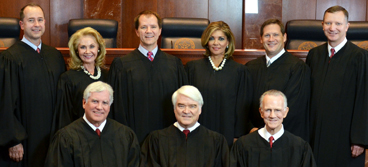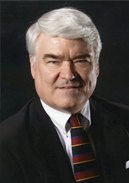© 2016 The Texas Lawbook.
By Janet Elliott
AUSTIN (July 5) – Mosquitoes are so ubiquitous in Brazoria County that towns celebrate the blood-sucking insect with slogans and festivals. But when a railroad worker suffered serious complications in 2008 from West Nile virus, he accused his employer of failing to provide a safe workplace.
Nearly eight years later, the Texas Supreme Court reversed the man’s $752,000 judgment, finding insufficient evidence that Union Pacific could have reduced the risk or prevented mosquitoes from swarming in damp, weedy areas around its tracks in the coastal county.
In its June 24 ruling, the court recognized the common-law doctrine of ferae naturae, which provides that landowners are not liable for injuries caused by wild animals or insects. The court said the doctrine applies to the Federal Employers’ Liability Act, which requires railroads to provide reasonably safe workplaces.
The ruling was 8-1. A dissenting justice said Union Pacific’s duty to provide a reasonably safe workplace was not negated by the common-law doctrine.

Kent Rutter, a Houston partner at Haynes and Boone, represented the railroad. Michael Sheppard, of Crain & Sheppard in Cuero, represented the worker, William Nami.
Chief Justice Nathan Hecht referenced the prevalence of mosquitoes in the majority opinion. Each day as he drove from his home in Cuero to the tracks near Sweeny, Nami passed a sign proclaiming Sweeny the “mosquito capital of the world.” A footnote states that nearby Clute hosts the annual Great Texas Mosquito Festival.
Mosquitoes were particularly bad in the days following Hurricane Ike’s Galveston landfall in September 2008. A jury in 2012 found that Nami contracted West Nile virus during his work on a tamping machine, a boxcar-size piece of equipment used to tamp down railroad ties. The cab had holes in its walls and floor, a broken air conditioner and a door that did not close.
Although Union Pacific had issued a bulletin about West Nile virus in May 2008, Nami said did not see the bulletin and was unaware of the risks. He said the railroad should have mowed the right-of-way or sprayed it with pesticides and provided mosquito repellent to employees.
“Union Pacific did nothing to attract mosquitoes, indigenous to Brazoria County and all South Texas, to its small right-of-way, and it could do nothing to keep them out,” Hecht wrote.

Justice Phil Johnson dissented. He said the doctrine of ferae naturae did not negate Union Pacific’s duty under FELA to act reasonably to provide Nami a safe place to work, and that it was proper to submit the case to the jury.
“The jury did not find the railroad negligent for failing to prevent mosquitoes from being around its tracks, so the Court’s assertion is irrelevant as this case is presented,” Johnson said.
Nami, who was 58 when he was diagnosed with West Nile virus and encephalitis, was unable to return to work. His long-term health problems include kidney disease and mental impairment.
The case was tried in Dewitt County, where Nami lived. The jury found that Nami was 20 percent responsible and Union Pacific was 80 percent responsible.
The 13th Court of Appeals upheld the judgment, saying that even if the common-law doctrine applied, Union Pacific was liable for negligence by creating conditions that attracted mosquitoes and by providing equipment in disrepair that allowed mosquitoes to swarm inside the cab.
See Genesis
Hecht, in his discussion of the common law concerning human dominion over animals, includes a footnote from Genesis and an 1846 English decision stemming from a monkey bite.
“Thus, as a rule, under the doctrine of ferae naturae, a property owner owes an invitee no duty of care to protect him from wild animals indigenous to the area unless he reduces the animals to his possession, attracts the animals to the property, or knows of an unreasonable risk and neither mitigates the risk nor warns the invitee,” Hecht wrote.
“Ordinarily, the property owner is no better able to protect an invitee than the invitee is to protect himself. The same rule applies to an employer’s duty to provide a safe workplace.”
© 2016 The Texas Lawbook. Content of The Texas Lawbook is controlled and protected by specific licensing agreements with our subscribers and under federal copyright laws. Any distribution of this content without the consent of The Texas Lawbook is prohibited.
If you see any inaccuracy in any article in The Texas Lawbook, please contact us. Our goal is content that is 100% true and accurate. Thank you.
